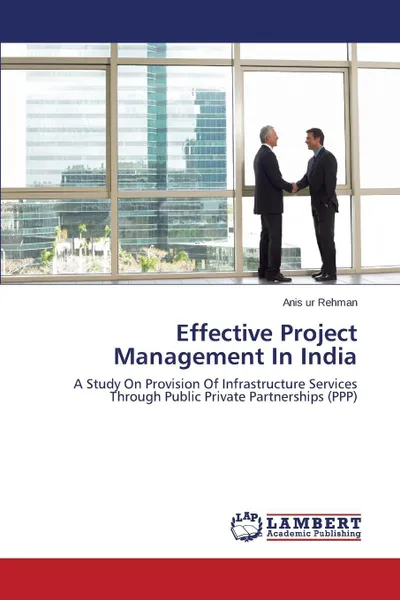Effective Project Management In India 12+
Автор: Rehman Anis ur
2015
116 страниц
Категория: Менеджмент и управление
ISBN: 9783659678226
Язык: Английский
📘 The most significant criteria for the continued growth rate of an economy rests on the provision of quality infrastructure. The Indian government finds it difficult to provide the required financial and technical resources and the executive capacity to cope with the rising demand for roads, electricity supply, water supply, etc. The government is experiencing increasing pressure from its citizens, NGO's and the media to provide accessible and affordable infrastructure and basic services. The emergence of Public Private Partnerships (PPP) is seen as a sustainable financing and institutional mechanism with the potential of bridging the infrastructure gap. This research aims to identify the various political, legal, financial, policy and social constraints faced by PPP projects in India. It discusses consumers' perception towards the need to involve private partners for providing infrastructure facilities in various sectors through PPP. This research also identifies priority sectors for provision of infrastructure facilities through PPP. In the end, it suggests practical measures for a suitable framework for successful implementation of PPP projects in India.
Мнения
